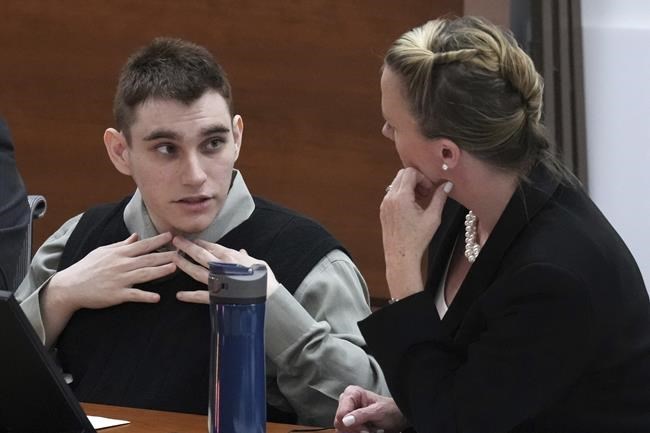FORT LAUDERDALE, Fla. (AP) — A jury of seven men and five women was chosen Tuesday for a penalty trial to decide whether Florida school shooter Nikolas Cruz should be sentenced to death or get life in prison for the 2018 attack, capping a nearly three-month winnowing process that began with 1,800 candidates.
The jurors were picked from a final group of 53 candidates by prosecutors and defense attorneys. Those chosen survived three rounds of questioning that began on April 4 and dragged on through numerous delays. Eight to 10 alternates were still being chosen Tuesady.
The jury will decide whether Cruz, 23, receives the death sentence or life in prison without parole for the murders of 14 students and three staff members at Parkland's Marjory Stoneman Douglas High School on Feb. 14, 2018.
Cruz pleaded guilty in October to those murders and 17 counts of attempted murder, so the jurors will only decide his punishment. They must be unanimous for Cruz to get the death penalty — if at least one votes for life, that will be Cruz's sentence.
The jurors chose are two banking executives and two technology workers, a probation officer, a human resources professional and a Walmart store stock supervisor. Also included are a librarian, a medical claims adjuster, a legal assistant and two retired executives from the insurance and health care fields.
Additionally, between eight and 10 alternates was still being chosen late Tuesday.
Each side was given the opportunity to persuade Circuit Judge Elizabeth Scherer that a particular candidate was biased. And if she disagreed, each side also had at least 10 peremptory challenges where they could eliminate candidates for any reason except race or gender.
The panel will have a task never faced by a U.S. jury — no American mass shooter who killed at least 17 people has ever made it to trial. Nine others died during or immediately after their shooting attacks, killed either by police or themselves. The suspect in the 2019 slaying of 23 at a Walmart store in El Paso, Texas, is awaiting trial.
In the first phase of jury selection, the prospective panelists were simply asked if their employment and life circumstances would allow them to serve the four months the trial is expected to last. About 80% were eliminated because their employers wouldn't pay them, they are self-employed, or they had school obligations or vacations planned.
In the second phase, the 300 remaining panelists were asked their opinions on the death penalty and whether they could be fair to Cruz. Finally, about 85 were asked about their lives and work histories, whether they could stomach seeing gruesome crime scene and autopsy photos and even if they play violent video games and believe white people have advantages in society not available to racial minorities.
The selection process was upended several times. One day, the sheriff’s deputies who guard the courtroom thought some potential jurors were about to attack Cruz and pulled him to safety as they quickly removed the threatening panelists. On another day, Scherer had to dismiss a group of potential jurors because one wore a T-shirt referencing the shooting that supported the victims and survivors. Selection also was delayed for two weeks when lead defense attorney Melisa McNeill contracted COVID-19.
The jurors will be exposed to graphic evidence, including crime scene and autopsy photos and tour the three-story classroom building where Cruz methodically stalked the halls, shooting at anyone in front of him and into classrooms. It has not been cleaned since the shooting and remains bloodstained and bullet-pocked, with Valentine's Day gifts strewn about.
Terry Spencer, The Associated Press

